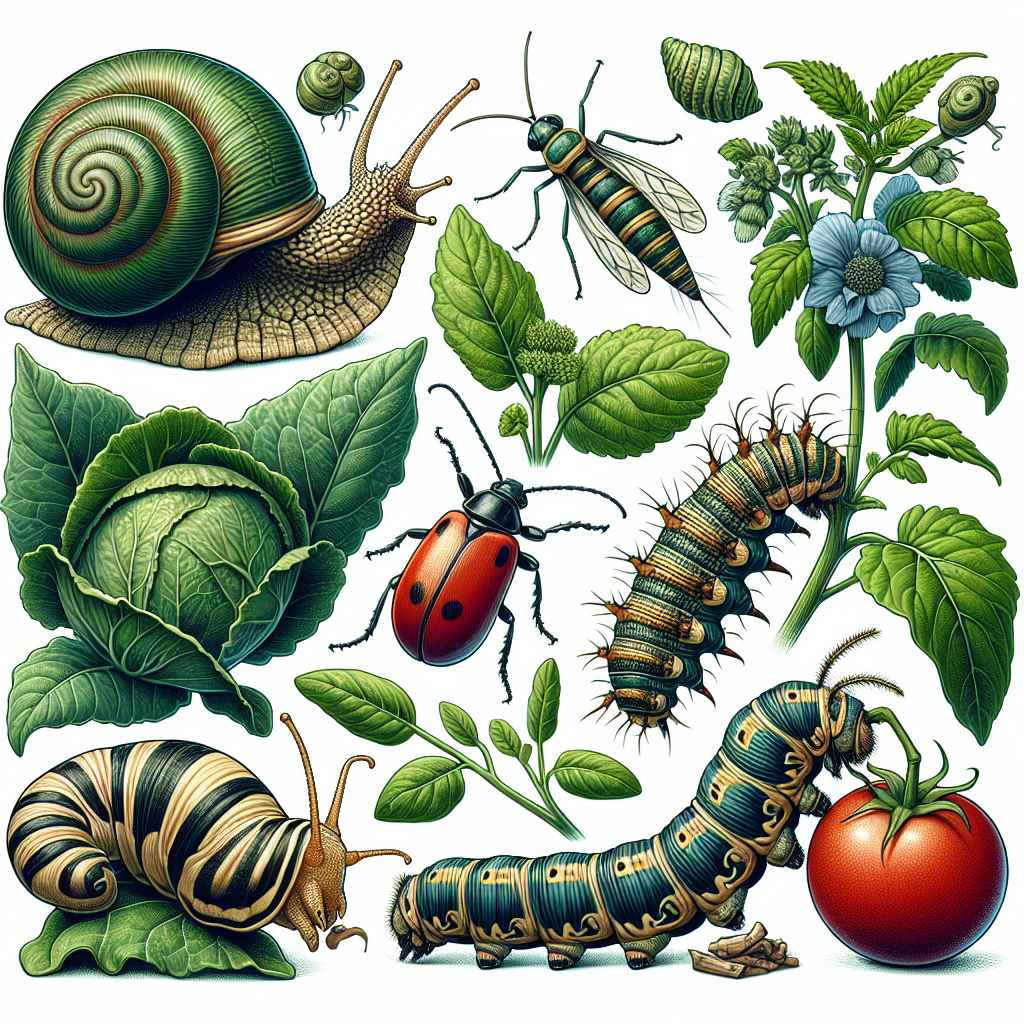If you’re looking for effective and natural methods to keep garden snakes at bay, you’re in the right place. Discover how to get rid of garden snakes with home remedies that are safe, simple, and effective. From natural deterrents to creating a snake-repellent barrier, learn practical tips that will help maintain a snake-free garden. Let’s explore the best strategies to ensure these slithering creatures stay out of your yard for good.
Understanding Garden Snakes: Common Types and Habits
Common Types and Habits
The most common types of garden snakes include garter snakes, ribbon snakes, and rat snakes. Each of these species has unique habits and behaviors that make them either more or less likely to take up residence in your garden. Garter snakes are often found near water sources and are known for their distinctive longitudinal stripes. They are generally harmless to humans but can be concerning to pets. Ribbon snakes resemble garter snakes but are usually thinner and longer. They also prefer moist environments and are active during the day. Rat snakes, on the other hand, are larger and can reach up to six feet in length. They are excellent climbers and hunters, often feeding on rodents and birds. Understanding these snakes’ habits can help in identifying their presence in your garden and determining the most effective methods to manage them.
Natural Repellents: Using Essential Oils to Deter Snakes
Essential oils are a natural, eco-friendly solution for deterring snakes from your garden. Certain oils have strong scents that snakes avoid, making them effective repellent options. Clove oil is one such oil, known for its potent aroma that snakes find unpleasant. Mix a few drops with water and spray it around snake-prone areas.
Cinnamon oil also serves as a powerful deterrent. Combine it with clove oil in a spray bottle for a more effective solution. Another useful oil is cedarwood oil. Snakes dislike its scent, and spraying it along garden perimeters can help keep them away.
Tea tree oil not only repels snakes but also other pests like insects. Prepare a mix of tea tree oil and water for an all-around repellent spray.
Lemongrass Oil
is another essential oil to consider. Its citrusy scent is offensive to snakes. Planting lemongrass around your garden adds an extra layer of protection.
Peppermint oil is another preventive measure. It has a sharp scent that keeps snakes at a distance. Create a mixture and spray it across your garden, especially in hiding spots. Always remember to reapply these sprays after rain for continued effectiveness.
Keeping Snakes at Bay: How to Snake-Proof Your Garden
Creating a snake-proof garden involves several strategic steps that can effectively deter these reptiles. Start by ensuring that your garden is free from tall grass and overgrown vegetation. Snakes prefer to hide in these areas, so keeping the lawn well-trimmed and removing brush or leaf piles is crucial.
Another effective method is to install snake-proof fencing. A tight-fitting fence made of hardware cloth or plastic mesh should be buried at least 6 inches into the ground and angled outward to prevent snakes from climbing over.
Remove any sources of water, such as standing water in bird baths or containers, as they attract not only snakes but also their prey. Be diligent about fixing leaking taps or irrigation systems.
Additionally, consider sealing gaps and holes in your garden shed or around the house foundation. Snakes can squeeze through surprisingly small spaces, so thorough inspection and sealing can prevent them from taking refuge.
Using natural repellents such as essential oils can also be beneficial. Oils like clove, cinnamon, and cedar can be mixed with water and sprayed around the perimeter of your garden to deter snakes.
A clean and clutter-free garden is less likely to attract snakes. Regularly dispose of garbage, compost properly, and store firewood away from your home to minimize hiding spots.
Incorporating snake-repellent plants like marigolds or lemongrass can also provide an additional layer of protection.
By consistently applying these practices, you can create a garden environment that is less inviting to snakes and more enjoyable for you and your family.
DIY Snake Repellent Sprays: Easy Home Recipes
Creating your own snake repellent sprays can be a simple and effective method to keep snakes out of your garden. These DIY solutions are made with natural ingredients and are safe for both the environment and your family.
Garlic Spray: Crush several cloves of garlic and let them sit in a jar with a cup of water for about an hour. Strain the mixture and pour the liquid into a spray bottle. Spray the solution around your garden’s perimeter and any areas where you’ve spotted snakes. The strong smell of garlic will deter snakes.
Clove and Cinnamon Oil Spray: Mix equal parts of clove oil and cinnamon oil in a spray bottle. Add water to dilute the mixture, then spray it around your garden. Both clove and cinnamon have strong odors that snakes find unpleasant.
Ammonia Spray: Fill a spray bottle with equal parts of water and ammonia. Spray the mixture around the garden or soak rags in the solution and place them in the areas where you’ve seen snakes. Snakes dislike the smell of ammonia and will avoid treated areas.
Spritz and Maintenance: Regularly apply these sprays, especially after rain, to maintain their effectiveness. Additionally, combine with other preventive measures such as keeping grass short and removing debris where snakes might hide.
These homemade snake repellent sprays are easy to make and provide a natural way to keep your garden snake-free. Remember to use ingredients that are safe for your plants and pets, and always test a small area before full application.
Safe and Humane Snake Removal Methods for Your Garden
When it comes to dealing with snakes in your garden, employing safe and humane removal methods is crucial. One of the first steps is identifying non-venomous snakes from venomous ones, to prevent any unnecessary harm. It’s essential to avoid handling snakes directly. Instead, use a long stick or a snake hook to gently guide the snake towards an open-top container. Once captured, relocate the snake to a safe area far from residential zones.
Another effective method involves the use of snake traps. These traps, often baited with live or dead insects, allow for the safe capture of snakes without harming them. Placement is critical—set traps along the garden’s perimeter or near known snake entry points.
Sealing off potential entry points in fences and garden sheds can also prevent snakes from making their way into your garden. Use fine mesh to cover vents and block small gaps. Regularly inspect these barriers to ensure they remain intact, particularly after storms or other events that could cause damage.
Consider natural deterrents such as predator urine, which can be strategically placed around your garden to discourage snakes. These are humane options that utilize the natural behavior of snakes to keep them at bay without causing them harm.
Finally, maintain a clean and tidy garden. Remove excess vegetation, debris, and potential hiding spots. Keeping your garden clutter-free drastically reduces the chance of snakes taking up residence.
Plants that Repel Snakes: What to Grow in Your Garden
Creating a garden that’s free of snakes involves choosing the right plants. Certain plants are known to deter snakes naturally. These plants can add beauty to your garden while keeping it safe.
Marigolds
Marigolds are not only vibrant and easy to grow, but their scent is also known to repel snakes. The roots of marigolds emit a strong odor that snakes dislike, making them a great addition to your garden.
Mother-in-Law’s Tongue
Mother-in-Law’s Tongue, or Sansevieria, is an effective snake repellent. Known for its sword-like leaves and drought tolerance, this plant’s sharp leaves create an unfavorable environment for snakes.
West Indian Lemongrass
West Indian Lemongrass is another excellent choice. It has a strong citrus scent that snakes find unpleasant. Planting lemongrass around your garden’s perimeter can form a natural barrier against snakes.
Garlic and Onions
Garlic and onions are commonly used in culinary dishes, but they also serve as snake repellents. Their pungent smell works as a natural deterrent, and planting them in your garden can help keep snakes away.
Andrographis Paniculata
Andrographis Paniculata, commonly known as the “King of Bitters,” is a plant that’s widely used in folk medicine. Its bitter taste and smell act as a natural repellent for snakes.
Creating a Snake-Free Environment: Landscaping Tips and Tricks
Incorporate specific landscaping techniques to naturally deter snakes from making your garden their home. Start by keeping grass trimmed and maintained since tall grass provides excellent hiding spots for snakes. Use gravel or rock mulch instead of traditional organic mulch, as it is less appealing to snakes.
Eliminate hiding spots like pile of leaves, wood, or debris. These areas offer shelter and attract snakes to stay longer. Ensuring that firewood and other stackable items are stored off the ground will also help in reducing snake shelters.
Create a border around your garden using snake-repelling plants such as marigolds or lemongrass. These plants not only enhance the beauty of your garden but also naturally repel snakes due to their scent and textures.
Installing snake-proof fencing is an effective long-term solution. Opt for materials like mesh or hardware cloth, ensuring the fence extends a few inches underground to prevent snakes from burrowing beneath it.
Regularly clear your garden of pests such as rodents and insects which serve as food sources for snakes. Maintaining pest control will limit the food supply available to snakes, making your garden less hospitable to them.
By implementing these landscaping tips and tricks, you can create a snake-free environment that is both safe and visually appealing.
Home Remedies to Get Rid of Garden Snakes: What Works Best
There are several home remedies that can help you get rid of garden snakes effectively. One popular method is using garlic and onion spray. Crush garlic and onion, mix with water, and spray around the garden perimeter. Snakes find the scent repelling.
White vinegar is another straightforward remedy. Pour it around the edges of your garden to create a boundary that snakes are likely to avoid. Its acetic acid content can disrupt their sense of smell.
Mothballs are also commonly used. Place them strategically around your garden, especially near potential entry points. The chemical smell of mothballs is a strong deterrent for snakes.
Cayenne pepper mixed with water can serve as an effective snake repellent spray. Combine it in a spray bottle and apply generously around the garden. Snakes are sensitive to the spicy scent and will avoid areas treated with this mixture.
Lime and peppermint oil can be combined to form a paste. Spread this mixture around your yard; the chemicals and scents in the paste are unpleasant to snakes and will steer them away.
Common Myths About Garden Snakes and Their Remedies Debunked
Many misconceptions surround garden snakes and their so-called remedies. One myth is that all garden snakes are venomous, which is inaccurate. Most garden snakes are harmless and beneficial for pest control. Another common myth is that using mothballs will repel snakes. However, this method is not only ineffective but also toxic to pets and children. It’s also believed that planting garlic and onions will keep snakes at bay. While these plants have some repellent properties, they are not foolproof solutions.
One of the most persistent myths is that pouring gasoline or chemicals into snake burrows will eliminate them. This is both dangerous and environmentally harmful. Instead, focus on reducing snake attractants in your garden by removing debris, sealing gaps in your fence, and using natural repellents like essential oils. Cinnamon oil and clove oil have been noted for their effectiveness in repelling garden snakes.
Finally, some believe that snakes are drawn to gardens with bird feeders. This is partially true, as the bird feeder attracts rodents, which in turn attract snakes. To mitigate this, keep the area around your bird feeder clean and free from dropped seeds and bird droppings. By debunking these myths, you can take more informed and effective steps to manage garden snakes.
Preventing Future Infestations: Long-Term Snake Control Solutions
When dealing with garden snakes, adopting long-term control solutions is crucial for ensuring they don’t become a recurring problem. Implement a combination of strategies to maintain a snake-free environment.
Maintain Your Yard Regularly
Keeping your yard tidy can significantly reduce the likelihood of snakes taking up residence. Regularly mow the lawn, remove debris, and trim back overgrown shrubs and bushes. Eliminate potential hiding spots such as rock piles, woodpiles, and dense underbrush.
Seal Entry Points
Inspect your property for cracks and gaps that snakes could use to enter. Use caulk to seal small openings and install weather stripping on doors and windows. Ensure the foundation, walls, and roof are well-maintained and free of holes.
Control Rodent Populations
Snakes often enter gardens in search of food like mice and rats. Implement rodent control measures to make your garden less appealing to them. This includes keeping trash cans tightly sealed, storing pet food properly, and using traps or professional pest control services if necessary.
Use Natural Predators
Encourage natural predators such as owls, hawks, and certain types of cats that help control snake populations. Installing owl boxes and nesting sites for predatory birds can attract these helpful creatures to your garden.
Install Fencing
Barrier fences are an effective way to keep snakes out. Use a fine mesh or solid material, bury the bottom several inches into the ground, and angle the top outward to prevent climbing. Make sure the fencing is sturdy and well-maintained over time.
Apply Chemical Repellents
Chemical repellents can be applied around the perimeter of your garden to deter snakes. Products containing naphthalene or sulfur are commonly used. Apply them according to the manufacturer’s instructions and reapply after heavy rains.
By implementing these long-term control solutions, you can prevent future infestations and keep your garden snake-free.
Understanding the habits and types of snakes commonly found in gardens is essential for effective removal. Garden snakes, also known as garter snakes, are generally harmless but can be a nuisance. They thrive in areas with ample cover and a food source, such as insects and small rodents. Identifying the specific type of snake can also help determine the best method for removal and prevention. For instance, the common garter snake is non-venomous and beneficial for pest control, whereas a larger, more aggressive snake might require professional assistance.
Essential oils can be powerful natural repellents against garden snakes. Oils like clove, cinnamon, and cedarwood are known to irritate snakes’ sensory organs. Mixing these oils with water in a spray bottle and applying them around your garden perimeter can deter snakes effectively. Regularly reapplying ensures continued effectiveness, especially after rain or watering your garden.
Creating a snake-proof garden involves several steps. First, remove debris such as piles of wood, rocks, and leaves where snakes can hide. Next, seal gaps and holes in fences or walls to prevent entry. Keeping the grass short and trimming bushes minimizes snake habitats. Additionally, installing snake-proof fencing can offer an added layer of protection.
DIY snake repellent sprays can be made from common household items. A mixture of garlic and onion blended with water and sprayed around the garden can make an effective deterrent. Another option is combining vinegar with rock salt to create a repulsive boundary.
If you encounter a snake, using humane removal methods is crucial. Encourage the snake to leave by gently spraying water or using a long stick to guide it out of the garden. In cases where the snake does not leave, consider contacting a professional wildlife removal service.
Certain plants can repel snakes naturally. For example, marigolds, lemongrass, and garlic are known for their repellent properties. Planting these around the garden can help keep snakes at bay.
Effective landscaping can also play a significant role in keeping your garden snake-free. Creating barriers with gravel or mulch and reducing moisture levels can deter snakes from settling. Additionally, ensuring that there are no gaps or holes in your garden’s perimeter can prevent them from entering.
Home remedies such as spreading mothballs or using sulfur are often suggested for snake control; however, these can be harmful to the environment and other wildlife. It is best to stick to safe and proven methods.
Common myths about garden snakes, such as pouring gasoline to repel them or using snake traps, can often do more harm than good. Reliable information and tested remedies should be prioritized for safe and effective snake control.
To prevent future infestations, maintain a regular garden cleaning routine and monitor for signs of snake presence. Regularly inspect and repair any potential entry points. Long-term solutions may also include seeking advice from pest control professionals to implement comprehensive prevention strategies.







